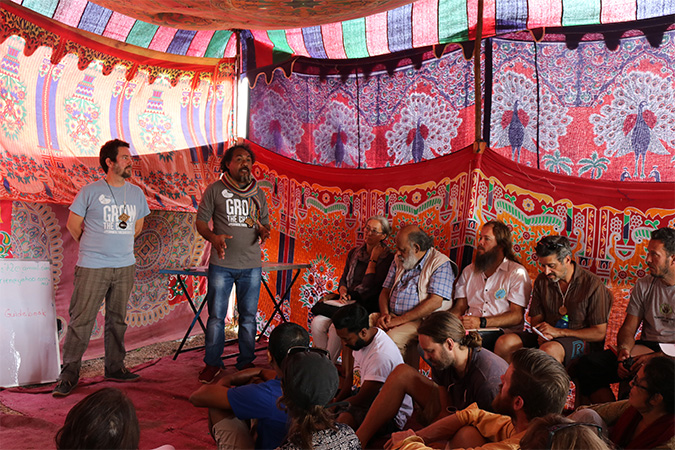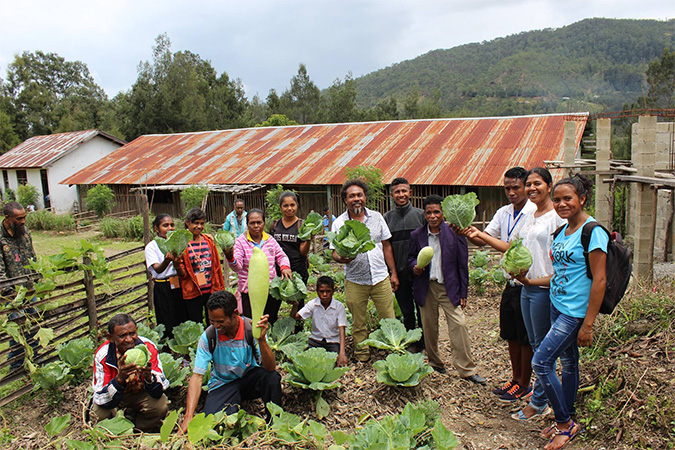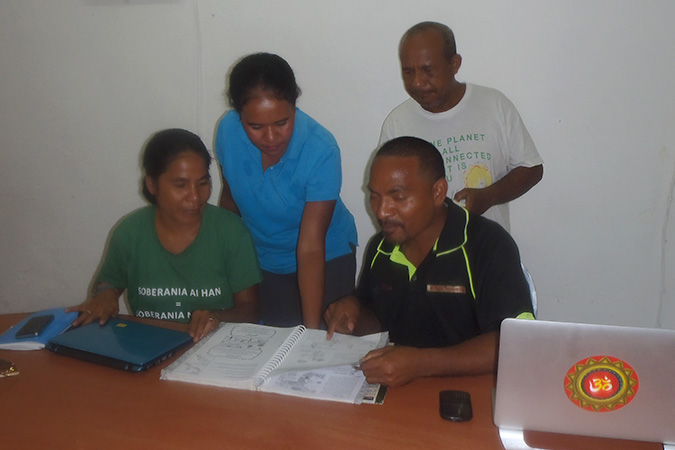Permatil Global
Permatil Global is a not-for-profit foundation established in Australia in 2020.
Since the launch of the international edition of The Tropical Permaculture Guidebook in 2018, the organic uptake of the guidebook quickly demonstrated the potential impact this project could bring to the world. In 2019, the seeds were sown to create ‘Permatil Global’, when the core team of Ego Lemos, Lachlan McKenzie, Lyn Jenkin met in country Victoria to discuss the future of the project.
Our vision was to build the infrastructure needed to drive the project forward and generate a significantly higher level of environmental impact that improves the lives of millions of people across the globe, while also supporting the on-the-ground initiatives of the flagship organisation – Permatil TL (Timor-Leste).
Today, Permatil TL and Permtil Global work closely together and have gained significant momentum over the last few years. The Tropical Permaculture Guidebook – international edition has now been accessed in 160 countries and 30 Island Territories and has been translated into the Timorese language of Tetum.
We have further extended our environmental reach in both Timor-Leste and internationally, continuing to make permaculture tools and knowledge accessible to everyone across the globe. We’re building networks, a suite of multimedia environmental education resources, with new language translations, and working with more people to strengthen food and water security, facilitate environmental regeneration, mitigate against climate change and build resilient and sustainable communities everywhere.
Yet the vision continues to be simple:
Permaculture. Everyone. Everywhere.
Our values and guiding principles
1. Global collaboration
We work in partnership with local, national and international organisations and individuals to create and share a worldwide permaculture knowledge bank.
2. Strong ethical foundations
We value local culture and knowledge, and support communities to take ownership of initiatives. We work to ensure access to information is open to everyone – regardless of income, location or ability. Our work is guided by the Permaculture Ethics and Principles and the United Nations Sustainable Development Goals.
3. Ongoing improvement and accountability
We welcome feedback that helps us do things better. We rigorously self-regulate our work and follow robust processes that underpin financial sustainability. We support one another and value everyone’s contributions, recognising each person’s specific areas of expertise.
4. Working with indigenous people the world over
Our work strengthens culture and voice, integrates traditional knowledge with appropriate modern technology, improves food sovereignty, increases access to traditional diets and regenerates local environments.








